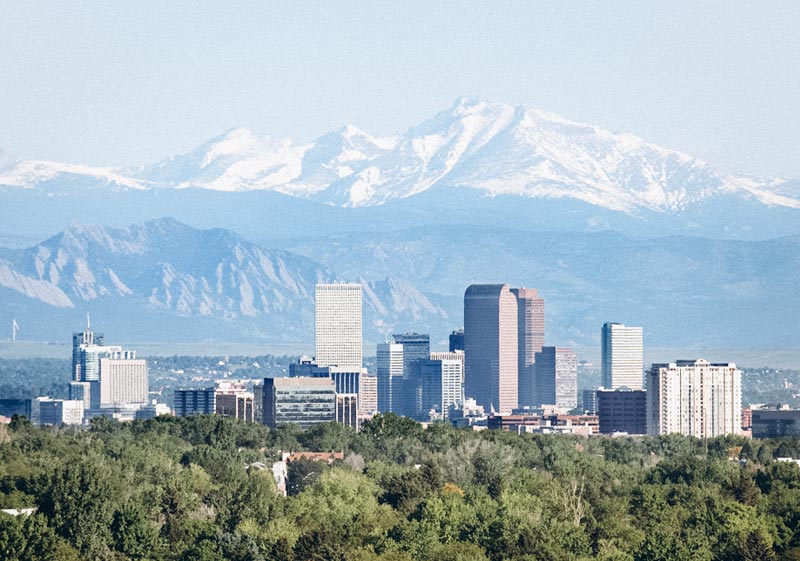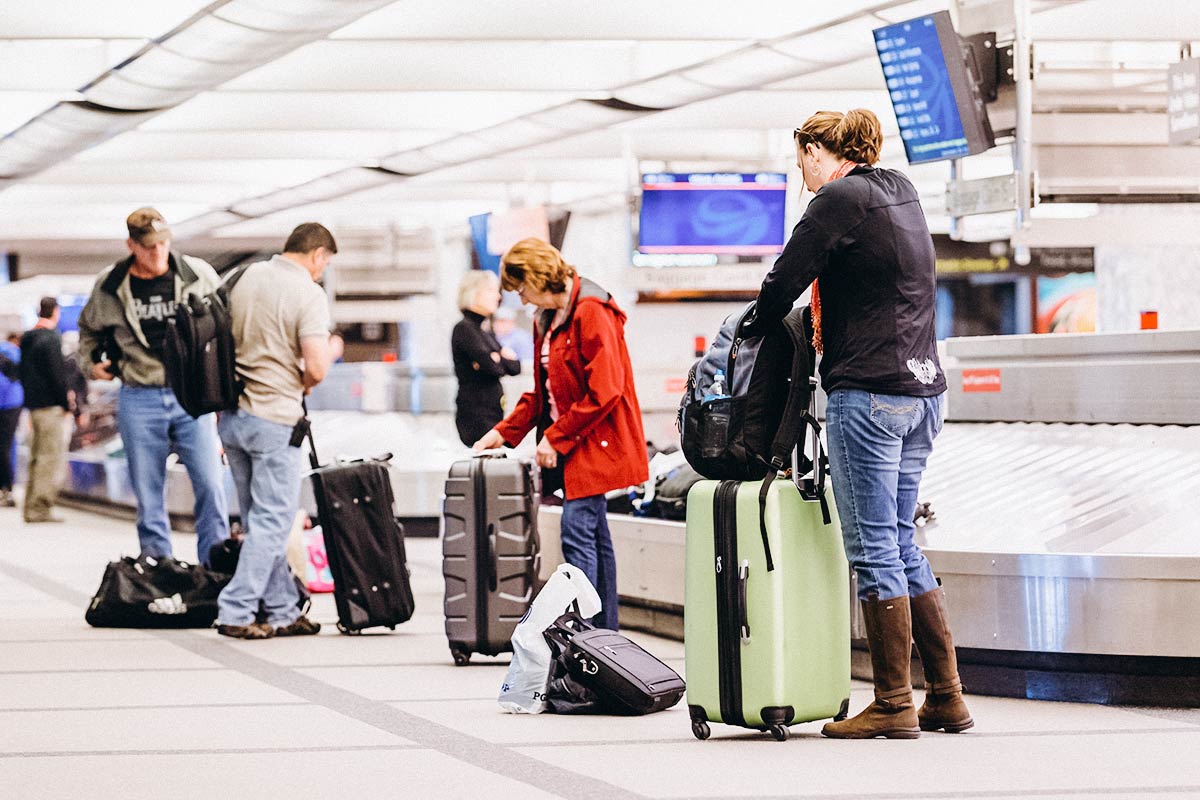UPDATE
February 1, 2023
How to Avoid Altitude Sickness with IV Therapy When You Visit Denver
Key Points
In Denver, urban sophistication seamlessly coexists with the great outdoors. From amazing cultural attractions to a wide array of craft breweries, to its imposing Rocky Mountains. However, Colorado boasts of great heights that can pose a problem to most people. Learn how mobile IV hydration can help you prevent altitude sickness in Denver.
What is Altitude Sickness?
Oxygen diminishes as altitude increases. If you ascend above 8,000 feet, you risk developing what is known as an altitude sickness. Generally, as you begin to ascend to higher altitudes, you may begin to experience symptoms such as progressively worsening vomiting and headaches, exhaustion, visual hallucinations, confusions, fatigue etc.
Heights over 8000ft or 2500m above sea level. Coincidentally, Denver is nicknamed the Mile-High City because its official elevation is 5280 feet or 1609m – exactly one mile above sea level. Unarguably, Colorado is the most elevated of all the states, and as such, the likelihood of experiencing altitude sickness especially for hikers and visitors is high. These symptoms are usually not subject to Age, fitness level or current health condition.

Are you susceptible to altitude sickness when you visit Denver, CO? Very likely. While extreme symptoms of acute mountain sickness begin to manifest at around 8000ft, it is common for visitors or those new to higher altitude environments – such as the Mile-High elevation of Denver – to show signs of discomfort at lower altitudes after an extended period.
Common symptoms of Mountain Sickness in Denver include:
Headache
Gastrointestinal symptoms
Fatigue/or weakness
Nausea
Exhaustion
Adequate hydration remains the most effective way of preventing altitude sickness.
Why Hydration is Crucial at Higher Altitudes
As you ascend – especially if you do so rapidly – you will become dehydrated faster than usual. What’s worse, your body doesn’t immediately notify you of the need to drink more water. Seeing as you don’t feel thirsty or hungry, you naturally ignore the need to drink more.
Amongst all the attractions in Colorado, the pick of the litter for most visitors are climbing and hiking the Rocky Mountains. When you exercise or engage in a physically demanding activity such as hiking or climbing, you tend to become dehydrated faster. Furthermore, temperature decreases as you ascend and as such, your body loses water faster – often without your knowledge. Your body’s fluid metabolism changes as you ascend, and dehydration is very likely.
Hydration is important regardless of altitude. However, it becomes especially crucial in higher altitudes as the body’s ability to convey thirst is reduced. Water serves several functions including getting rid of toxins and damaging free-radicals and facilitating the repair of muscles after a long climb. In addition, hydration increases the volume of oxygenated blood in the body.
By staying hydrated – either by drinking more water or getting the altitude sickness IV Therapy – you can significantly decrease the likelihood of getting altitude sickness during your hike in Denver.
Role of IV Hydration in Altitude Sickness
Staying hydrated during your hike may appear as easy as drinking water every other five minutes. However, most people will be unable to drink any fluid if they feel Nauseous – Nausea is one of the common effects of altitude sickness while enjoying the mountains of Colorado.

IV Therapy use for hydration is more effective at counteracting altitude sickness as its very direct approach involves administering the solution directly to your bloodstream without the need to drink. This can be very crucial when there is an urgent need to stay hydrated if you feel nauseous or weak.
With IV Therapy, recovery from altitude sickness is quicker and more effective. There are several kinds of at home IV Therapy, including the anti-inflammatory and anti-nausea treatment. All our IV Therapy solutions contain the right amounts of vitamins and minerals needed to kickstart your immune system and cause instant relief, specifically for altitude sickness. Helping you stay hydrated and energized throughout the rest of your climb.
Tips to Help You Prepare for Hiking in Colorado
Hiking is a fun activity that can easily become unbearable and dangerous if you go unprepared. Apart from altitude sickness, there is also the risk of getting injured or hurt. So, follow these tips to remain safe and enjoy a fun climb.
Come Prepared
Before you call your buddies or pack your hiking gear, it’s important that you know what lies ahead so you can come prepared. You don’t want to be taken unawares during your ascent. One important thing you can do is to check the most updated weather report for the location you will be hiking in.
Ensure that the weather conditions are satisfactory and confirm from the local park ranger about the condition of the hike trail. This will help you prepare better or postpone your climb.
Have a Laid-Out Plan
Hiking solo is generally discouraged. So, make plans to hike with a group of buddies or friends. If you cannot find a hiking partner, then talk to an official at the park to find out how they can pair you with a guide.
Your plan should also include a map, a trail and the estimated time duration of the hike. Also, Notify the authorities at the park of when you are expected to return so they can begin search and rescue operations if you take too long
Think Safety, Think Prevention
Prevention is always better than cure and safety should be at the top of your list. You need to first ascertain that you are indeed fit enough to go hiking on that trail. Also, ensure you have the correct hiking gear for the specific trail or terrain. The proper gear can help you prevent many freak accidents commonly associated with hiking.
Generally, hiking sticks help with stability on an uneven terrain and sturdy ankle boots help increase your agility. You should also carry a basic first aid and medical kit for any medical emergencies.
Preventing Altitude Sickness and Dehydration with IV Therapy in Denver and Colorado
The demanding physical nature of the climb, the cold temperatures as you ascend and the high altitudes can all make you susceptible to altitude sickness when you go hiking in Colorado.

To ensure you stay and remain hydrated at no extra inconvenience to you, we have decided to bring our hydration therapy to you. Our IV Therapy can be delivered directly to your home, hotel, resort, hostel or Airbnb’s around Denver and Colorado
Our mobile IV hydration therapy provides relief from altitude sickness within 30 minutes and prevents symptoms from reoccurring, too. Our at-home IV Therapy contains essential minerals and vitamins to keep your immune system kicking and your energy levels high. Our mobile IV Therapy in Denver ensures that you remain hydrated and energized on the go for a more enjoyable and rewarding climb.
To learn more about our at home IV Therapy or how to get it delivered to your location in Denver or within a 60-mile radius, feel free to give us a call or text at (800) 801-8525, or Book Online and we will be more than happy to help.
Effective Altitude Sickness Relief in Denver
Say goodbye to generic healthcare and experience the benefits of personalized care with HydraMed's IV therapy. Our skilled nurses will create a customized blend of nutrients designed to meet your specific needs, so you can achieve optimal health and vitality.
Other Articles
Areas We Serve Near You
HydraMed Denver
Need assistance booking your personalized HydraMed Mobile IV therapy? Our Patient Care Coordinators are just a phone call away at (800) 801-8525 or available online and via text.
Written by Mark Baldwin, FFPM
Mark Baldwin, a firefighting and paramedic expert, has transformed lives through his extensive expertise in IV therapy. His experience in international disaster relief and longevity research has led to innovative practices such as peptides, NAD+, exosomes, and stem cells, which advance health and wellness.
Medically Reviewed by Courtney Williams, FNP
Courtney Williams, a distinguished Nurse Practitioner with HydraMed, embodies our profound commitment to the principles of longevity, ensuring every treatment and consultation she provides is a step towards a fuller, healthier life. Her expertise is not merely in treating the present but in anticipating the future, guiding patients through hormone optimization, medical weight loss, and advanced peptide therapy with an eye on prolonging vitality and enhancing life quality.
- Institute of Medicine (US) Committee on Military Nutrition Research; Marriott BM, Carlson SJ, editors. Nutritional Needs In Cold And In High-Altitude Environments: Applications for Military Personnel in Field Operations. Washington (DC): National Academies Press (US); 1996. 17, Physical Performance at High Altitudes.https://www.ncbi.nlm.nih.gov/books/NBK232877/?report=reader
- LeWine, H. E., MD. (2022, January 3). Altitude Sickness. Harvard Health.https://www.health.harvard.edu/a_to_z/altitude-sickness-a-to-z
